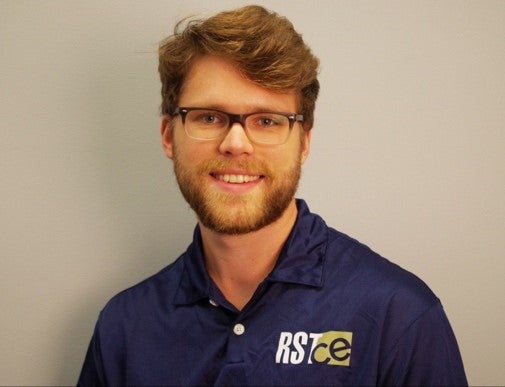Rehabilitation Science and Technology is for everyone.
Our Mission
The mission of the Department of Rehabilitation Science and Technology’s (RST) Equity, Justice and Inclusion Initiative is to promote diversity, maintain accountability and amplify the voices of disenfranchised persons. Through our efforts, we guarantee all department personnel the opportunity to succeed academically and professionally regardless of their background. Rehabilitation Science and Technology is a broad field that includes aspects of health care, engineering and other sciences. Recognizing systemic, historical inequities in these areas, RST has developed the following priorities and actionable initiatives to meet our goal of guaranteed success and justice.
SHRS' Inclusion Initiatives play an important role in the University of Pittsburgh's efforts to promote diversity and inclusion campus-wide. It is an effective means of reaching diverse students to let them know that their decision to pursue their studies in one of our health care options is a fantastic way of providing high quality, comprehensive care to others and that the door is open for everyone.
It is our pleasure to partner with SHRS programs in recruiting, welcoming, retaining and graduating talented diverse health care professionals for the good of our country's health.
—Paula Davis, associate vice chancellor, Health Sciences Diversity, Equity and Inclusion
Rehabilitation Science and Technology is a broad field that includes aspects of health care, engineering and other sciences. Recognizing systemic, historical inequities in these areas, RST has developed the following priorities and actionable initiatives to meet our goal of guaranteed success and justice.
RST EJI Quick Links:
AccelerATe Scholarship - The goal of the AccelerATe scholarship is to expand the assistive technology field’s workforce more globally and inclusively. As the need for AT grows, so does the need for diverse, visionary scholars who have demonstrated leadership in areas typically under-represented in STEM and health care.
SHRS Wellness Pavilion - RST works closely with the Homewood Community Engagement Center and SHRS Wellness Pavilion to promote health and education in our community.
Who We Are:
The RST EJI Committee is comprised of members of the Department of Rehabilitation Science & Technology, including staff, faculty, researchers and students. Individuals interested in getting involved in EJI work or learning more about the committee can contact any of our officers below.

Acting Chair:
Karl A. Kemmerer, MS
He/Him/His
Continuing Education Manager
Kak216@pitt.edu

Communications Officer:
Nancy Augustine BSBA, MsEd
She/Her/Hers
Project Manager, ISWP and IMPACT Center Staff
naugustine@pitt.edu

Community Engagement Liaison:
Daniel Fisher, MHA
He/Him/His
Assistant Chair for Administration and Operations
dfisher@pitt.edu
Our committee collaborates with RST’s Community Engagement Committee, a separate group with a similar mission but different objectives. The EJI Committee’s focus is on promoting equity within our department, while the Community Engagement Committee works with other organizations to promote equity throughout the Pittsburgh community.

Chair Emeritus:
Anand Mhatre, PhD
He/Him/His
Dr. Mhatre is a founding member and original chair of the EJI committee. In May 2022, Anand accepted a tenure-track position at the Ohio State University. We wish him the best in his professional journey!
Our Priorities:

1. Promote Diversity

RST is dedicated to hiring, enrolling and collaborating with diverse groups of peers. To do this, we have developed need-based scholarships to reduce financial barriers to education, dedicated resources to promoting our program in different regions and among various populations and reviewed our practices to guarantee that we are not susceptible to unconscious biases in hiring and enrollment.
2. Maintain Accountability

The most important step in making long-lasting change is to look internally and improve oneself. To lead by example, RST has set up various "checks" to hold ourselves accountable to the highest standards of justice and equity. We have reviewed both our physical and virtual spaces to ensure that they are accessible and periodically administer a department survey to collect feedback on the inclusion climate within RST. Our EJI committee considers this feedback when deciding where to allocate resources to best promote the goals of the initiative.
3. Amplify Voices

When fighting for justice and inclusion, the views and voices that are most important are often the first to be suppressed. To combat this, RST strives to create an environment where such perspectives are valued and given a platform to be heard. We facilitate open discussion and ensure that our thinking is not limited only to the domains, perspectives and solutions that we have accepted in the past.
The RST EJI Initiative aligns with:
- The University's goal and strategies to promote Diversity and Inclusion
- The mission of our Office of Health Sciences Diversity (OHSD)
- The values that define the School of Health and Rehabilitation Sciences (SHRS)
